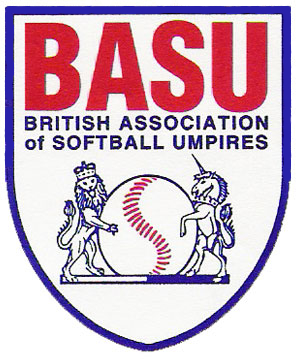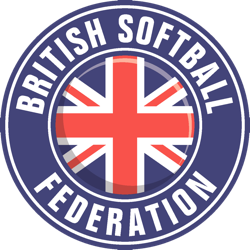 Only 10 people attended the 2015 AGM of the British Association of Softball Umpires (BASU) in Bristol on Saturday 7 February – but this partly reflects the fact that things are going well in the world of British umpiring. One of the key elements discussed at the meeting was an expansion of umpire training.
Only 10 people attended the 2015 AGM of the British Association of Softball Umpires (BASU) in Bristol on Saturday 7 February – but this partly reflects the fact that things are going well in the world of British umpiring. One of the key elements discussed at the meeting was an expansion of umpire training.
Last season
BASU umpires called a total of just under 2,500 slowpitch games in 2014 and more than 60 fastpitch games, including just under 100 games using a two-umpire system and a smaller number using three umpires, including every game at the Premier Nationals – a practice that BASU plans to continue. Relief umpires were used for an additional 175 games (about 7% of games called).
BASU Umpire-in-Chief Jes Sandhu reported that there were sufficient umpires and no major issues across all the domestic tournaments that BASU covered last season, and there were many positive comments on the standard of umpiring from players, coaches and tournament organisers.
In terms of providing umpires for fastpitch and the Great Britain Fastpitch League, BASU had its most successful season yet, thanks partly to the fact that two ISF-qualified Australian umpires, Jana McCaskill and Bridget Cameron, are now resident in the UK. They are not only increasing the standard of fastpitch umpiring on the ground, but will be helping BASU develop fastpitch umpire training materials and courses.
In addition, BASU met its European requirements, and generally positive feedback was received on European performances.
BASU acquired two more slowpitch umpire-trainers in 2014 – Hans Daanen and Peter Jones – and delivered five two-day courses and five one-day courses, plus an Advanced Course for eight or nine umpires by invitation.
BASU also hosted an ESF Slowpitch clinic in May 2014, and BASU umpires Debbie Moores, Hans Daanen, Luis Arrevillagas and Lesley Morisetti received ESF qualification.
Finances
BASU wound up with an operating loss of close to £1200 in 2014, but much of this loss was anticipated and reserves remain healthy.
The loss was mainly due to the cost of hosting an ESF Slowpitch Course in the UK, plus a change in the BASU membership fee that cost the organisation more money than expected. BASU membership has been £30 a year in recent times, but in 2014 it went down to £10 for existing members and up to £40 for new members (which included a substantial discount on umpire kit and clothing).
For 2015, BASU membership will revert to a flat £30 for all members, but new members will still get discounts on clothing.
BASU members are free to pay by standing order at the moment, but in future BASU may consider making this the standard payment method for all members.
BASU Committee
Three members of the 2014 BASU Committee – Robyn Belt (Secretary) Peter Jones (Membership Officer) and Liz Warner (Kit Officer) – have stepped down from their positions, but all three have been replaced. The 2015 BASU Committee will consist of:
EXECUTIVE OFFICERS
Umpire-in-Chief
Jes Sandhu
Assistant Umpire-in-Chief
Lesley Morisetti
Training Officer
Chris Moon
Secretary
Pete Saunders
Treasurer
Steve Getraer
GENERAL OFFICERS
Membership Officer
Pearl Bramhall
Website Liaison & Development
Lesley Morisetti
BASU Representative on the BSF Executive
Chris Moon
Fastpitch Officer
David Hurley
Kit Officer
Kate Moon
Training
BASU continues to widen the scope and professionalism of its umpire training, and in 2015, in addition to the usual one-day and two-day qualification courses delivered to slowpitch leagues, there will be an emphasis on advanced courses for slowpitch umpires and the development of a standard fastpitch training course.
BASU has run an Advanced Slowpitch Course by invitation in each of the past two years, with a maximum of eight or nine umpires attending, but two advanced courses will be run in 2015, one in Manchester for the North and one, probably at Richings Park, for the South.
In order to qualify for the one-day Advanced Course, which is delivered free of charge, umpires must have taken the standard two-day BASU Qualification Course at least twice and must score 90% or better on a special open rulebook 30-question test. Those who take and pass the Advanced Course will be excused from having to sit the Qualification Course again for the next four years.
The Advanced Course will not be a rules course; instead, it will mainly cover game control, coach control and game scenarios, based to some extent on a two-umpire system, using both ISF and ASA materials. Jes Sandhu, Mike Jennings, Chris Moon and Pete Saunders will be the trainers.
Potential candidates have been emailed about the course, and BASU Training Officer Chris Moon told the meeting that there has been a good response. It now remains to set dates, confirm venues, and see how many candidates pass the 30-question test.
Another key training initiative this year will be the development of a BASU fastpitch umpire course, which the Association has lacked up to now, relying previously on imported trainers. The BASU course will be developed by BASU Fastpitch Officer David Hurley with extensive support from Jana McCaskill and Bridget Cameron, the two ISF-qualified umpires now living in Scotland.
Initially, it is likely to be a one-day course aimed at slowpitch umpires who want to add fastpitch to their portfolio, but the course will be promoted further, especially to fastpitch coaches.
BASU umpires in Europe
With four BASU umpires having received their ESF slowpitch qualification last year, BASU has made a decision that newly-qualified umpires will be given priority this year in terms of sending umpires to fulfil BSF umpiring commitments at European tournaments.
This will be the best way to ensure that these umpires can follow up their qualification with European tournament experience.
In 2015, for slowpitch, this will mean umpiring at the European Slowpitch Championships in Dupnitsa, Bulgaria, from July 28-August 1, and Britain will probably be asked to supply two or three blues for the tournament.
The main criteria for deciding among the newly-qualified umpires will be the number of domestic games umpired in 2014, particularly at NSL level.
BASU's four currently-active fastpitch-qualified umpires are David Hurley, Jes Sandhu, Bridget Cameron and Jana McCaskill, and David Hurley will be given first priority this year to add to his European experience. Three GB fastpitch teams – the GB Women, GB Under-19 Men and GB Under-16 Girls – will be competing in European Championships this year, while the London Angels club team has entered the ESF Women's Cup.
To help more BASU umpires gain experience in Europe, BASU will be happy to send non-ESF-qualified umpires to unofficial invitational tournaments on the Continent or in places like Jersey.
Other matters
Umpire payments: Some umpires complained last year about taking too long to get paid after working tournaments, and BASU has now stipulated that umpires will always be paid within a week. Although tournament organisers are set strict payment deadlines, the ability of BASU to pay its umpires promptly shouldn't depend on organisers meeting these deadlines since BASU has considerable reserves.
Bats and balls: Which bats and balls will be legal in 2015 has not changed from 2014, and the relevant information will soon be published as a reminder on the BSF website.
Umpire support: As in 2014, when working tournaments with two-umpire crews, BASU will attempt to combine experienced and less experienced umpires whenever possible so that new umpires will have support as they gain tournament experience.
